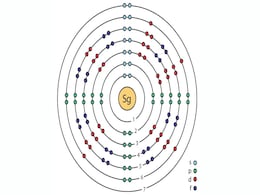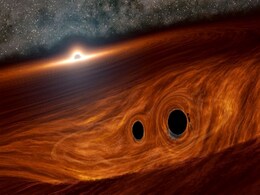Physical Review Letters
- All
- News
-

Researchers Discover New Plasma Wave in Jupiter’s Auroral Skies
- Monday August 25, 2025
Scientists at the University of Minnesota Twin Cities have detected a new plasma wave in Jupiter’s aurora using NASA’s Juno spacecraft. The finding, published in Physical Review Letters, reveals how Jupiter’s magnetic field shapes auroral activity differently from Earth. The study opens new directions for understanding planetary auroras and m...
-
 www.gadgets360.com
www.gadgets360.com
-

New Physics-Based Model Sheds Light on How Deep Neural Networks Learn Features
- Thursday August 14, 2025
A Physical Review Letters study likens deep neural network feature learning to spring-block mechanics, linking data simplification to spring extension and nonlinearity to friction. The model reveals how noise can balance separation across layers and help predict performance, offering a powerful tool to optimise training, improve generalisation, and...
-
 www.gadgets360.com
www.gadgets360.com
-

Newly Detected Seaborgium-257 Offers Critical Data on Fission and Quantum Shell Effects
- Wednesday July 2, 2025
The discovery of 257Sg by GSI scientists reveals new insights into nuclear stability and introduces the first seaborgium K-isomer. These findings challenge established theories of fission and may guide future efforts in synthesising superheavy elements like 256Sg and beyond.
-
 www.gadgets360.com
www.gadgets360.com
-

Gravitational Waves Reveal Black Hole Ancestry Through Spin Analysis
- Monday February 3, 2025
A study published in Physical Review Letters explores how gravitational waves reveal the ancestry of black holes. By examining 69 black hole mergers, researchers found that spin shifts indicate repeated collisions in dense star clusters. This insight supports models suggesting black holes grow through sequential mergers. Observatories like LIGO and...
-
 www.gadgets360.com
www.gadgets360.com
-

Scientists Develop New Approach to Capture Gravitational Wave Memory from Supernovae
- Wednesday December 18, 2024
A study published in Physical Review Letters highlights new methods to detect the gravitational wave memory effect, a unique phenomenon predicted by Einstein's general relativity. Core-collapse supernovae (massive stellar explosions) generate these low-frequency gravitational waves, offering a rare glimpse into stellar interiors. Despite their weak...
-
 www.gadgets360.com
www.gadgets360.com
-

Scientists Spot Light Flare From a Black Hole Collision for the First Time Ever
- Friday June 26, 2020
- Abhik Sengupta
A team of international astronomers believe that they might have detected light from a black hole merger, for the first time ever. This unprecedented event was noted by scientists at Caltech' Zwicky Transient Facility (ZTF) in California after studying gravitational waves and electromagnetic radiation from the collision of two black holes.
-
 www.gadgets360.com
www.gadgets360.com
-

Rare Space Radio Signals To Better Test Einstein's Theory
- Saturday January 2, 2016
- World News | Press Trust of India
Scientists have developed a new way to test one of the basic principles of Einstein's theory of General Relativity using brief blasts of rare radio signals from space.
-
 www.ndtv.com
www.ndtv.com
-
Higgs Boson may unravel dark energy mystery
- Sunday August 11, 2013
- World News | Press Trust of India
The recently discovered Higgs boson could provide a possible "portal" to physics that may help explain some of the attributes of the enigmatic dark energy, scientists suggest.
-
 www.ndtv.com
www.ndtv.com
-
Why does anything exist? Scientists find a bit of the answer
- Wednesday April 24, 2013
- World News | Reuters
Scientists probing the nature of antimatter have found a bit more evidence to explain why the universe is not an empty husk, although not enough to account for the billions of galaxies strewn across the cosmos.
-
 www.ndtv.com
www.ndtv.com
-

Researchers Discover New Plasma Wave in Jupiter’s Auroral Skies
- Monday August 25, 2025
Scientists at the University of Minnesota Twin Cities have detected a new plasma wave in Jupiter’s aurora using NASA’s Juno spacecraft. The finding, published in Physical Review Letters, reveals how Jupiter’s magnetic field shapes auroral activity differently from Earth. The study opens new directions for understanding planetary auroras and m...
-
 www.gadgets360.com
www.gadgets360.com
-

New Physics-Based Model Sheds Light on How Deep Neural Networks Learn Features
- Thursday August 14, 2025
A Physical Review Letters study likens deep neural network feature learning to spring-block mechanics, linking data simplification to spring extension and nonlinearity to friction. The model reveals how noise can balance separation across layers and help predict performance, offering a powerful tool to optimise training, improve generalisation, and...
-
 www.gadgets360.com
www.gadgets360.com
-

Newly Detected Seaborgium-257 Offers Critical Data on Fission and Quantum Shell Effects
- Wednesday July 2, 2025
The discovery of 257Sg by GSI scientists reveals new insights into nuclear stability and introduces the first seaborgium K-isomer. These findings challenge established theories of fission and may guide future efforts in synthesising superheavy elements like 256Sg and beyond.
-
 www.gadgets360.com
www.gadgets360.com
-

Gravitational Waves Reveal Black Hole Ancestry Through Spin Analysis
- Monday February 3, 2025
A study published in Physical Review Letters explores how gravitational waves reveal the ancestry of black holes. By examining 69 black hole mergers, researchers found that spin shifts indicate repeated collisions in dense star clusters. This insight supports models suggesting black holes grow through sequential mergers. Observatories like LIGO and...
-
 www.gadgets360.com
www.gadgets360.com
-

Scientists Develop New Approach to Capture Gravitational Wave Memory from Supernovae
- Wednesday December 18, 2024
A study published in Physical Review Letters highlights new methods to detect the gravitational wave memory effect, a unique phenomenon predicted by Einstein's general relativity. Core-collapse supernovae (massive stellar explosions) generate these low-frequency gravitational waves, offering a rare glimpse into stellar interiors. Despite their weak...
-
 www.gadgets360.com
www.gadgets360.com
-

Scientists Spot Light Flare From a Black Hole Collision for the First Time Ever
- Friday June 26, 2020
- Abhik Sengupta
A team of international astronomers believe that they might have detected light from a black hole merger, for the first time ever. This unprecedented event was noted by scientists at Caltech' Zwicky Transient Facility (ZTF) in California after studying gravitational waves and electromagnetic radiation from the collision of two black holes.
-
 www.gadgets360.com
www.gadgets360.com
-

Rare Space Radio Signals To Better Test Einstein's Theory
- Saturday January 2, 2016
- World News | Press Trust of India
Scientists have developed a new way to test one of the basic principles of Einstein's theory of General Relativity using brief blasts of rare radio signals from space.
-
 www.ndtv.com
www.ndtv.com
-
Higgs Boson may unravel dark energy mystery
- Sunday August 11, 2013
- World News | Press Trust of India
The recently discovered Higgs boson could provide a possible "portal" to physics that may help explain some of the attributes of the enigmatic dark energy, scientists suggest.
-
 www.ndtv.com
www.ndtv.com
-
Why does anything exist? Scientists find a bit of the answer
- Wednesday April 24, 2013
- World News | Reuters
Scientists probing the nature of antimatter have found a bit more evidence to explain why the universe is not an empty husk, although not enough to account for the billions of galaxies strewn across the cosmos.
-
 www.ndtv.com
www.ndtv.com










